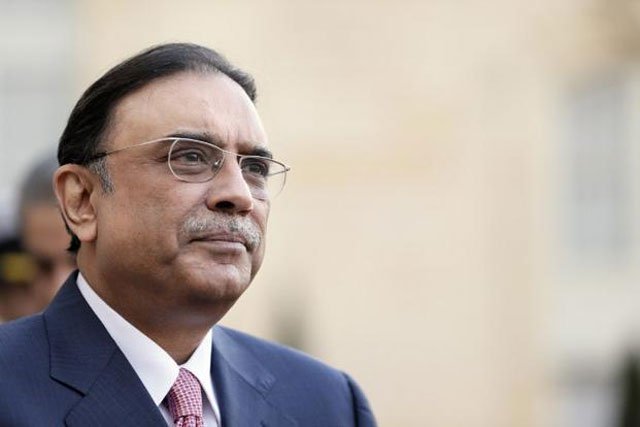
The law was repealed by the Sindh Assembly in the first week of April on the grounds that corruption was a provincial subject and that the anti-graft watchdog had no say in the matter.
Repealing the law, the Sindh government had passed ‘Sindh Accountability Act 2017’ under which ‘Sindh Accountability Agency’ was set up to probe corruption cases in the province. After the law was passed, the opposition parties challenged it in court and announced a campaign against it saying, “PPP is trying to defend its corrupt politicians and bureaucrats that is why it repealed the NAB law in Sindh.”
“PPP is a party of federation and has always championed the cause of federation, but controversy has arisen with respect to repeal of the NAB Ordinance passed by the provincial assembly. So, the Sindh government may revisit the said act and bring it in consonance with similar laws prevailing in other provinces,” Zardari told Sindh Chief Minister Murad Ali Shah.
Larger bench constituted to hear NAB ordinance repeal petitions
The PPP leadership’s decision has come to fore a day after the Sindh High Court restored Sindh IG AD Khawaja. Earlier, not only the PPP leadership, but its ministers also endorsed the decision of repealing the NAB Ordinance 1999 in Sindh, saying that action against corruption is “a provincial matter”.
The NAB Ordinance 1999 was repealed after a number of corruption cases were opened against the PPP leaders and Sindh government bureaucrats.
In many cases, the NAB officials, with the help of Rangers, conducted raids at various government offices and arrested people, including Dr Asim, a close aide of Zardari. A senior official in the Sindh government said that Zardari was advised by constitutional experts and senior leaders in PPP to reconsider repealing the NAB law.
NAB Repeal Act: Sindh’s anti-NAB law challenged in SC
“They are trying to save their reputation as they are afraid that the court can give a verdict against the Sindh government’s decision,” sources said. Other reports pouring in suggested that the decision was made to appease higher authorities in Islamabad and Rawalpindi.
Rebutting the claims of appeasing higher authorities, Sindh Law Minister Zia-ul-Hassan said, “Some people have challenged this law in the court dubbing us as a provincial party apparently because we have repealed the NAB Ordinance, which is a federal law, therefore, we have decided to quash this perception,” he said. “As the opposition parties, including MQM and PML-F, have challenged the repealing of the NAB law in court, the Sindh advocate general will soon inform the court that the provincial government intends to revisit its decision. As a result, the pending case should be put on hold.”
“The chief minister will soon convene a cabinet meeting where the matter will be discussed and the cabinet will finally decide the fate of the law,” he said, adding that the Sindh government, like Khyber-Pakhtunkhwa, has established its own accountability law, which will continue in full swing in the province.
PTI challenges repealing of NAB ordinance
He said, “The Sindh Accountability Agency, set-up by the provincial government, will primarily work against corruption and federal law (NAB Ordinance 1999) will also remain intact.”
It is pertinent to note here that when the assembly had repealed the NAB Ordinance on July 3, Sindh Governor Muhammad Zubair had refused to give his assent and asked the assembly secretariat to reconsider the decision, but the Sindh Assembly turned down the governor’s message and again passed the law amid opposition parties’ protest.



1730959638-0/trump-(19)1730959638-0-165x106.webp)













COMMENTS
Comments are moderated and generally will be posted if they are on-topic and not abusive.
For more information, please see our Comments FAQ